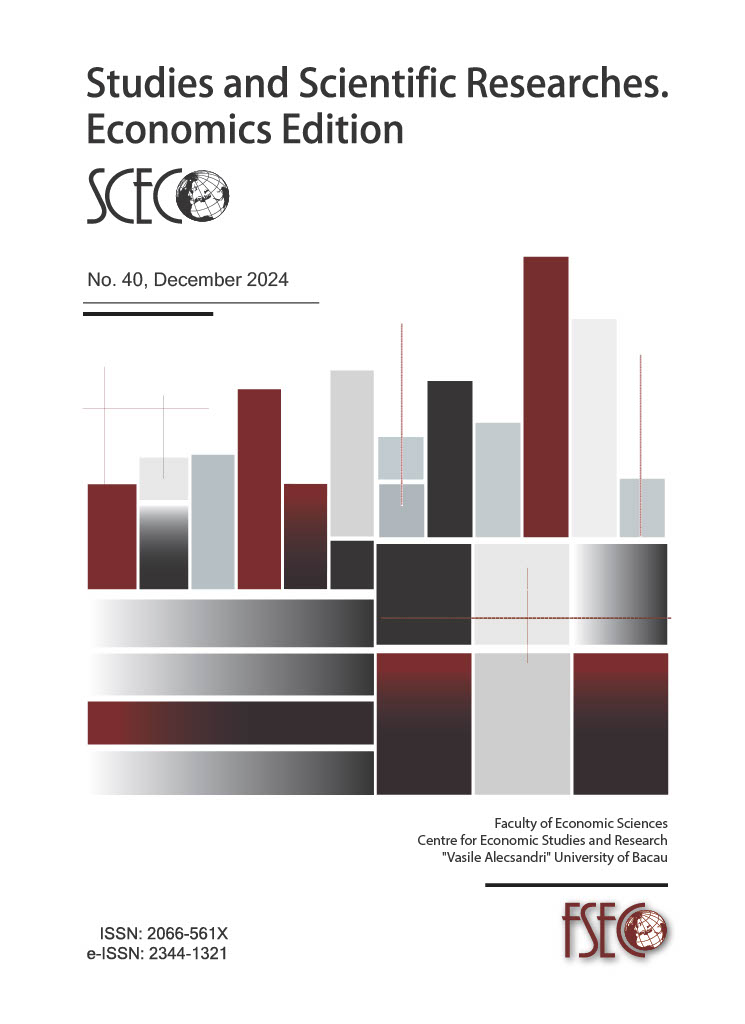The Evolution of the Romanian Local Administration Budget between 2014-2023 for Environmental Protection
DOI:
https://doi.org/10.29358/sceco.v0i40.585Keywords:
local administration budget; enviromental protection expenses; development regions; Center Region; Commune; City; MunicipalityAbstract
This study analyzes the Romanian local administration budget for environmental protection from 2014 to 2023. Positioned as the second-most significant budget within Romania's consolidated financial structure, the local administration budget has faced increasing demands to meet environmental objectives. With international pressures, particularly from the European Union, environmental budgeting is essential to align with sustainability goals and counter environmental degradation. This paper explores the evolution of budget allocations at the national, regional, and local levels, focusing on disparities among development regions, including a detailed case study of the Centre Region. Using descriptive statistics and comparative analysis, the study assesses environmental spending by administrative units, distinguishing between communes, cities, and municipalities. Furthermore, the research employs ANOVA and Tukey tests to identify significant differences in budget allocations across regions and within the Centre Region, emphasizing variances between urban and rural funding levels. Findings reveal fluctuations in funding consistency, regional disparities, and trends in per capita allocations that underscore the differences in budgetary emphasis on environmental protection. This analysis highlights the critical role of localized environmental protection spending in supporting Romania’s environmental and public health outcomes and contributes to broader discussions on sustainable public finance strategies.
Downloads
References
Geacu, S., Dumitrașcu, M., & Maxim, I., (2012), The evolution of the Natural Protected Areas Network in Romania. Rom.Journ. Geogr. București.
Hillman, A. L., (2009), Public Finance and Public Policy. Cambridge University Press, New York.
Runte, A. (2010). National Parks: The American Experience. University of Nebraska Press.
Sterner, T., & Coria, J. (2012). Policy Instruments for Enviromental and Natural Resource management. RFF Press.
Zhang, J., Qu, Y., Zhang, Y., Li, X., & Miao, X., (2019), Effects of FDI on the Efficiency of Government Expenditure on Environmental Protection Under Fiscal Decentralization: A Spatial Econometric Analysis for China, International Journal of Enviromental Research and Public Health.
Downloads
Published
Issue
Section
License
Copyright (c) 2024 Csongor Csősz

This work is licensed under a Creative Commons Attribution 4.0 International License.
Authors who publish with Studies and Scientific Researches. Economics Edition (SCECO) agree to the following terms:
-
Copyright Retention
Authors retain full copyright over their work and grant the journal the right of first publication. The published article is simultaneously licensed under the Creative Commons Attribution 4.0 International License (CC BY 4.0). This license permits others to:-
Share — copy and redistribute the material in any medium or format
-
Adapt — remix, transform, and build upon the material
for any purpose, even commercially, as long as proper attribution is given to the original author(s) and source.
-
-
Additional Distribution
Authors may enter into separate, non-exclusive contractual arrangements for the distribution of the journal’s published version of the work (e.g., post it to an institutional repository, include it in a book), with clear credit to the initial publication in SCECO. -
Preprint and Open Posting Policy
Authors are encouraged to post their work online (e.g., in preprint archives, institutional repositories, or personal websites) before submission, during review, and after publication.
This practice supports academic exchange and can lead to earlier and broader dissemination and citation of published work.
(See: “The Effect of Open Access” – PLOS)
For further inquiries regarding copyright, licensing, or archiving, please contact the editorial office at Editorial Board








